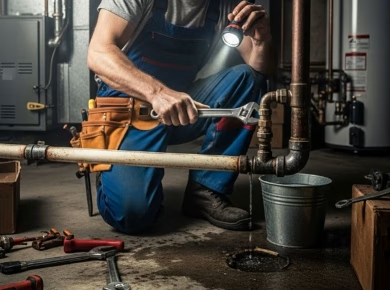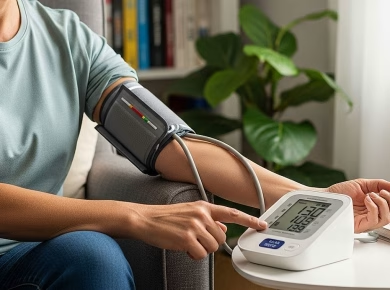Medical device packaging is a critical aspect of the healthcare industry that ensures product safety, sterility, and usability. As the medical device market grows and evolves, packaging innovations become essential to meet regulatory standards, improve patient outcomes, and optimize supply chains. In this article, we will explore the latest trends shaping medical device packaging and explain why working with specialized medical device packaging consultants can be a game-changer for companies seeking to stay competitive and compliant.
The Growing Importance of Medical Device Packaging
Packaging for medical devices is far more than just a protective layer. It serves several important functions: maintaining sterility, providing clear labeling, facilitating easy handling during medical procedures, and ensuring the product reaches the end user without contamination or damage. Innovations in this area directly impact patient safety and satisfaction.
Given the stringent regulatory environment surrounding medical devices—such as FDA requirements in the United States and ISO standards internationally—packaging must meet exacting criteria. This complexity means that companies cannot afford to overlook packaging design and materials. This is where industry experts, such as medical device packaging consultants, play a vital role in guiding companies through technical, regulatory, and operational challenges.
Key Trends in Medical Device Packaging
1. Sustainable and Eco-Friendly Materials
Sustainability has become a priority in nearly every industry, and medical device packaging is no exception. Manufacturers are increasingly adopting biodegradable, recyclable, and renewable materials to reduce environmental impact. Innovative bioplastics, paper-based alternatives, and compostable films are being explored to replace traditional plastics.
While sustainability is important, packaging must still maintain sterility and barrier properties, which requires advanced material science. This balance between eco-friendliness and functionality is driving new research and development efforts.
2. Smart Packaging Technologies
Smart packaging integrates technology to enhance the safety and usability of medical devices. Examples include:
- RFID tags for improved inventory management and tracking
- Temperature-sensitive indicators that show if the product has been exposed to unsafe conditions
- Tamper-evident features to ensure device integrity
- QR codes and NFC chips to provide patients and healthcare professionals with instant access to usage instructions or verification details
These technologies not only improve the supply chain but also reduce errors and increase patient confidence.
3. Enhanced Sterilization Compatibility
Sterilization methods such as gamma irradiation, ethylene oxide, and electron beam require packaging materials that can withstand these processes without compromising device integrity. Advances in packaging engineering now allow for better compatibility with various sterilization techniques, extending product shelf life and ensuring safety.
Materials that are permeable to sterilizing agents yet maintain physical strength are increasingly used, demanding expert design and testing.
4. User-Centric Design
The end users of medical devices, including patients and healthcare workers, benefit greatly from packaging designed with usability in mind. Features such as easy-open seals, ergonomic grips, and intuitive labeling help reduce handling time and minimize the risk of contamination.
This user-centric approach often involves human factors engineering to tailor packaging solutions to diverse users, including the elderly or people with disabilities.
5. Modular and Customizable Packaging
As personalized medicine grows, so does the need for modular packaging systems that can accommodate various device configurations and sizes. Customizable packaging allows for flexible manufacturing and faster market response.
Innovative modular designs also reduce storage space and transportation costs, which are critical for supply chain efficiency.
Why Medical Device Packaging Consultants Are Essential
Navigating the complexities of medical device packaging requires a deep understanding of regulatory requirements, materials science, sterilization processes, and market trends. Medical device packaging consultants bring expertise that can accelerate product development and reduce costly errors.
Regulatory Compliance and Risk Management
Consultants ensure that packaging meets all relevant regulations and standards, reducing the risk of non-compliance, recalls, or legal issues. They guide companies through documentation, testing protocols, and submission requirements, saving valuable time and resources.
Material Selection and Testing
Choosing the right materials is crucial for maintaining sterility and functionality. Consultants have access to the latest materials and understand how they interact with sterilization methods and device components. They can design and execute comprehensive testing to verify performance and durability.
Innovation and Cost Efficiency
By staying up to date with emerging trends, packaging consultants help companies implement innovative solutions that differentiate products in the market. They also optimize designs to reduce material waste and production costs, which is essential for profitability.
Supply Chain Optimization
Experienced consultants understand logistics challenges and can recommend packaging solutions that improve transportation safety and storage efficiency. This reduces product damage and leads to smoother distribution.
Cross-Functional Collaboration
Packaging consultants work closely with R&D, regulatory, manufacturing, and marketing teams, ensuring packaging integrates seamlessly with other product elements and business goals.
Conclusion
Innovations in medical device packaging are transforming how products are protected, delivered, and used in healthcare settings. Sustainable materials, smart technologies, sterilization compatibility, user-centric designs, and modular packaging are all shaping the future of this vital field.
To successfully implement these trends and meet strict regulatory demands, partnering with expert medical device packaging consultants is invaluable. Their specialized knowledge and experience not only improve packaging performance and safety but also help companies reduce costs and accelerate time to market.
Staying ahead in the competitive medical device industry means embracing innovative packaging solutions and leveraging the expertise of consultants who understand every aspect of this complex discipline.
Read Next:
8 Innovative Product Packaging Tips That Boost Sales
How Cosmetic Industry Enhances Packaging In 5 Fantastic Ways








